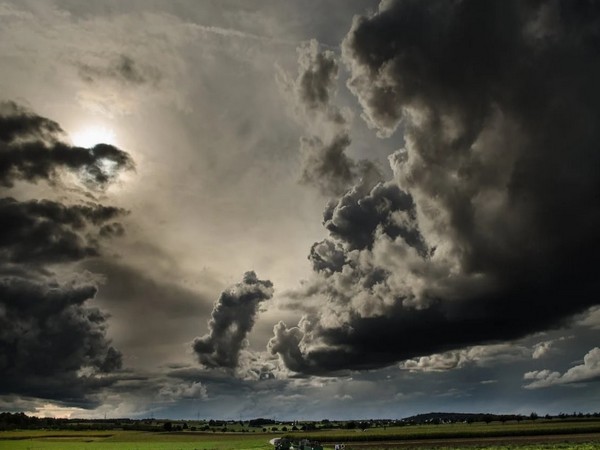New Delhi: Recognising the critical need for accurate weather forecasting, especially in a country where agriculture is a primary livelihood, the Indian government has approved Mission Mausam (Mausam meaning season).
This ambitious initiative, led by the Ministry of Earth Sciences (MoES), comes with a budget of Rs 2,000 crore (267 million USD) allocated over two years.
The mission’s primary objective is positioning India as a global leader in weather and climate sciences while ensuring the nation is ‘Weather Ready’ and ‘Climate Smart’, aligning with international standards.
India’s economy is intricately tied to its climate. With agriculture contributing nearly 18 percent of the nation’s GDP and employing about 60 percent of its population, accurate and timely weather forecasting is indispensable.
The unpredictability of monsoons, frequent droughts, floods, and extreme weather events significantly impact food production, water resources, and overall economic stability.
In addition to agriculture, sectors such as infrastructure, energy, and disaster management rely heavily on precise weather predictions.
Recent years have seen a surge in extreme weather events, from cyclones along the coastal regions to heatwaves in northern India.
These events underscore the urgent need for robust weather monitoring and forecasting systems.
Mission Mausam aims to address these challenges by enhancing India’s capabilities in weather prediction and climate resilience.
Mission Mausam is a comprehensive initiative designed to elevate India’s weather forecasting capabilities to global standards. Its primary objectives include:
Advanced forecasting systems: Upgrading India’s weather prediction models to provide more accurate short-term and long-term forecasts.
Infrastructure development: Establishing new weather observation stations, high-performance computing systems, and advanced radars.
Research and development: Promoting innovation in meteorological research to better understand climate patterns and their socio-economic impacts.
Capacity building: Training and equipping human resources to interpret and disseminate weather data effectively.
Global collaboration: Partnering with international meteorological organizations to exchange data, methodologies, and best practices.
Artificial intelligence (At) the core of Mission Mausam lies technological innovation. The mission plans to deploy cutting-edge tools and systems, including:
High-resolution weather models: Improving spatial and temporal resolution to predict localized weather phenomena with higher accuracy.
Next-generation Doppler radars: Enhancing coverage and accuracy in monitoring cyclones, thunderstorms, and other severe weather events.
Satellite systems: Launching new geostationary and polar satellites dedicated to weather observation and climate monitoring.
High-performance computing (HPC): Expanding computational capacity to process vast amounts of meteorological data in real time.
Internet of Things (IoT) devices: Integrating IoT sensors for real-time weather data collection across remote and vulnerable regions.
For a country like India, where agriculture is highly dependent on monsoons, Mission Mausam could be transformative.
Farmers often struggle with erratic rainfall, which affects sowing, irrigation, and harvesting cycles.
With improved weather forecasting, they can make informed decisions about crop planning and resource allocation.
Additionally, the mission aims to develop agrometeorological advisories, providing farmers with tailored guidance based on hyperlocal weather conditions.
These advisories can include recommendations on pest control, fertilizer application, and water management, helping farmers mitigate risks and improve yields.
Extreme weather events cause widespread destruction, claiming lives and damaging infrastructure.
Mission Mausam will enhance India’s disaster preparedness by providing early warnings for cyclones, floods, and heatwaves.
The integration of real-time data and advanced analytics will enable authorities to take preemptive measures, minimizing casualties and economic losses.
The mission’s emphasis on making India ‘Climate Smart’ aligns with the broader goal of sustainable urban development.
By integrating weather and climate data into urban planning, cities can better manage resources, reduce carbon footprints, and adapt to climate challenges.
This includes designing green infrastructure, optimising energy use, and ensuring water security.
Through Mission Mausam, India aspires to establish itself as a global leader in weather and climate sciences.
By strengthening its research capabilities and fostering international collaborations, the mission aims to contribute significantly to global climate initiatives.
Indian scientists will have the opportunity to participate in international projects, sharing insights and learning from global counterparts.
India’s involvement in initiatives like the World Meteorological Organization (WMO) and the Paris Agreement positions it as a key player in addressing global climate challenges.
Mission Mausam will further reinforce this position by contributing valuable data and expertise.
While Mission Mausam holds immense promise, its implementation comes with challenges, which include funding utilization, data integration, public awareness, and climate change mitigation.
However, despite these challenges, the mission’s potential to transform India’s approach to weather and climate resilience is undeniable.
By leveraging technological advancements and fostering a collaborative approach involving government agencies, academic institutions, and private players, Mission Mausam can lay the foundation for a more sustainable and secure future.
Mission Mausam represents a pivotal step in India’s journey towards becoming ‘Weather Ready’ and ‘Climate Smart’.
With its focus on technological innovation, capacity building, and global collaboration, the mission aims to address critical challenges posed by weather and climate.
As India strives to safeguard its agriculture, economy, and citizens from the impacts of climate variability, Mission Mausam emerges as a beacon of hope and resilience.
By prioritising accurate weather forecasting and sustainable practices, the initiative not only addresses immediate concerns but also prepares the nation for a future shaped by climate change.
